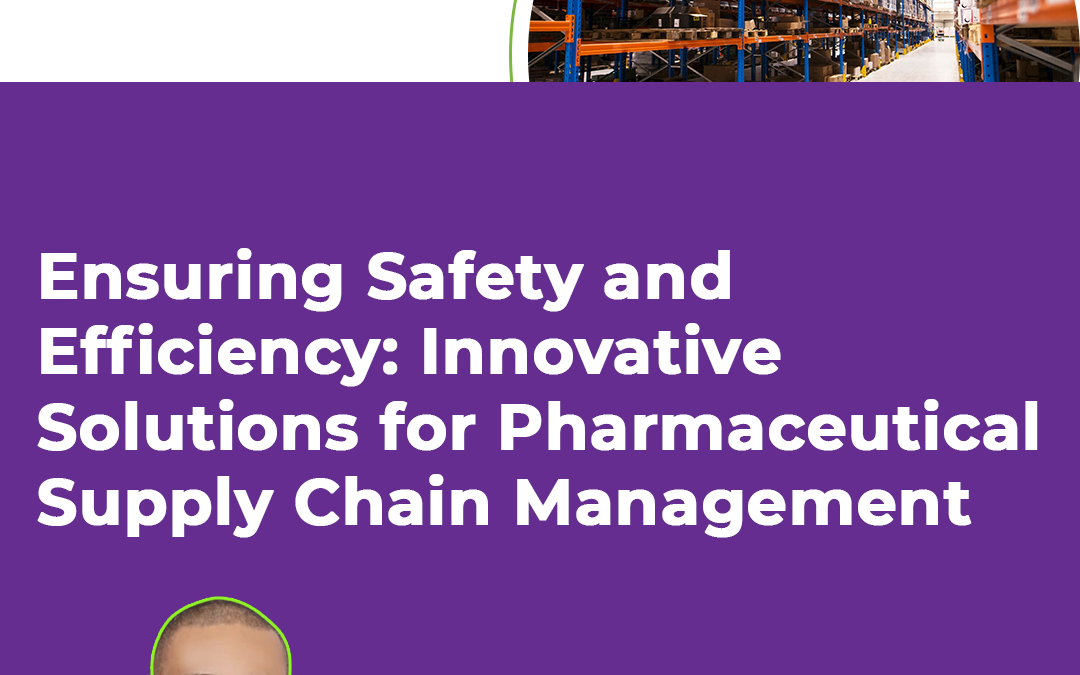Supply chain management plays a critical role in the pharmaceutical industry, ensuring the timely and efficient flow of pharmaceutical products from manufacturers to patients. The pharmaceutical supply chain encompasses various stages, including raw material sourcing, manufacturing, distribution, and retail. It involves multiple stakeholders, such as pharmaceutical companies, wholesalers, distributors, pharmacies, hospitals, and patients.
Pharmaceutical Supply Chain Problems
Counterfeit Medicines
The pharmaceutical industry faces the significant challenge of counterfeit medicines entering the supply chain. Counterfeit drugs not only pose serious health risks to patients but also undermine the reputation of pharmaceutical companies. Weak supply chain controls and inadequate traceability systems contribute to the proliferation of counterfeit medicines.
Drug Shortages
Shortages of critical drugs can occur due to various reasons, including manufacturing issues, regulatory challenges, supply disruptions, or increased demand. Drug shortages can compromise patient care and lead to higher treatment costs.
Temperature Control
Many pharmaceutical products, such as vaccines, biologics, and certain medications, require specific temperature conditions for storage and transportation. Maintaining the cold chain throughout the supply chain is crucial to ensure the effectiveness and safety of these products. Any deviation from the required temperature range can lead to product spoilage and loss of potency.
Regulatory Compliance
The pharmaceutical industry is subject to strict regulatory requirements to ensure product safety, quality, and efficacy. Compliance with regulations such as Good Manufacturing Practices (GMP), Good Distribution Practices (GDP), and serialization requirements presents challenges in terms of documentation, tracking, and ensuring consistent quality standards throughout the supply chain.
Solutions to Supply Chain Problems
Serialization and Track-and-Trace Systems
Implementing serialization and track-and-trace technologies allows for the unique identification and tracking of pharmaceutical products throughout the supply chain. These systems enable better visibility and traceability, making it easier to identify and prevent the entry of counterfeit medicines into the market.
Collaboration and Information Sharing
Enhancing collaboration among supply chain partners and sharing relevant information can help address drug shortages and improve supply chain efficiency. Real-time data sharing on inventory levels, demand forecasts, and production capabilities enables proactive decision-making and timely response to supply chain disruptions.
Cold Chain Management
Robust cold chain management systems, including temperature monitoring devices, insulated packaging, and temperature-controlled transport vehicles, are essential to maintain product integrity during storage and transportation. Implementing automated temperature monitoring systems and conducting regular audits can help prevent temperature excursions and minimize product spoilage.
Regulatory Compliance and Quality Assurance
Pharmaceutical companies should invest in robust quality management systems and ensure compliance with regulatory requirements at all stages of the supply chain. This includes rigorous supplier qualification processes, regular audits, and quality control measures to maintain product safety and efficacy.
Risk Management and Contingency Planning
Developing risk management strategies and contingency plans can help mitigate supply chain disruptions. Identifying potential risks, such as natural disasters, geopolitical issues, or supplier failures, and developing alternative sourcing strategies or safety stock levels can help minimize the impact of disruptions on the supply chain.
Conclusion
Effective supply chain management is crucial for the pharmaceutical industry to ensure the availability, quality, and safety of medicines. Addressing problems such as counterfeit medicines, drug shortages, temperature control, and regulatory compliance requires a multi-faceted approach involving collaboration, technology adoption, and robust quality assurance processes. By implementing appropriate solutions, the pharmaceutical industry can enhance patient safety, improve supply chain efficiency, and mitigate potential risks.

 We use cookies to ensure that we give you the best experience on our website. If you continue to use this site we will assume that you are happy with it.
We use cookies to ensure that we give you the best experience on our website. If you continue to use this site we will assume that you are happy with it.